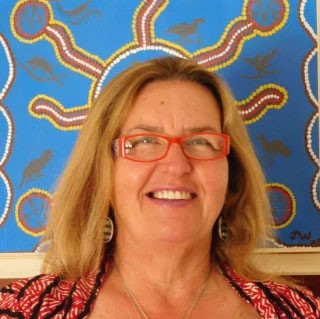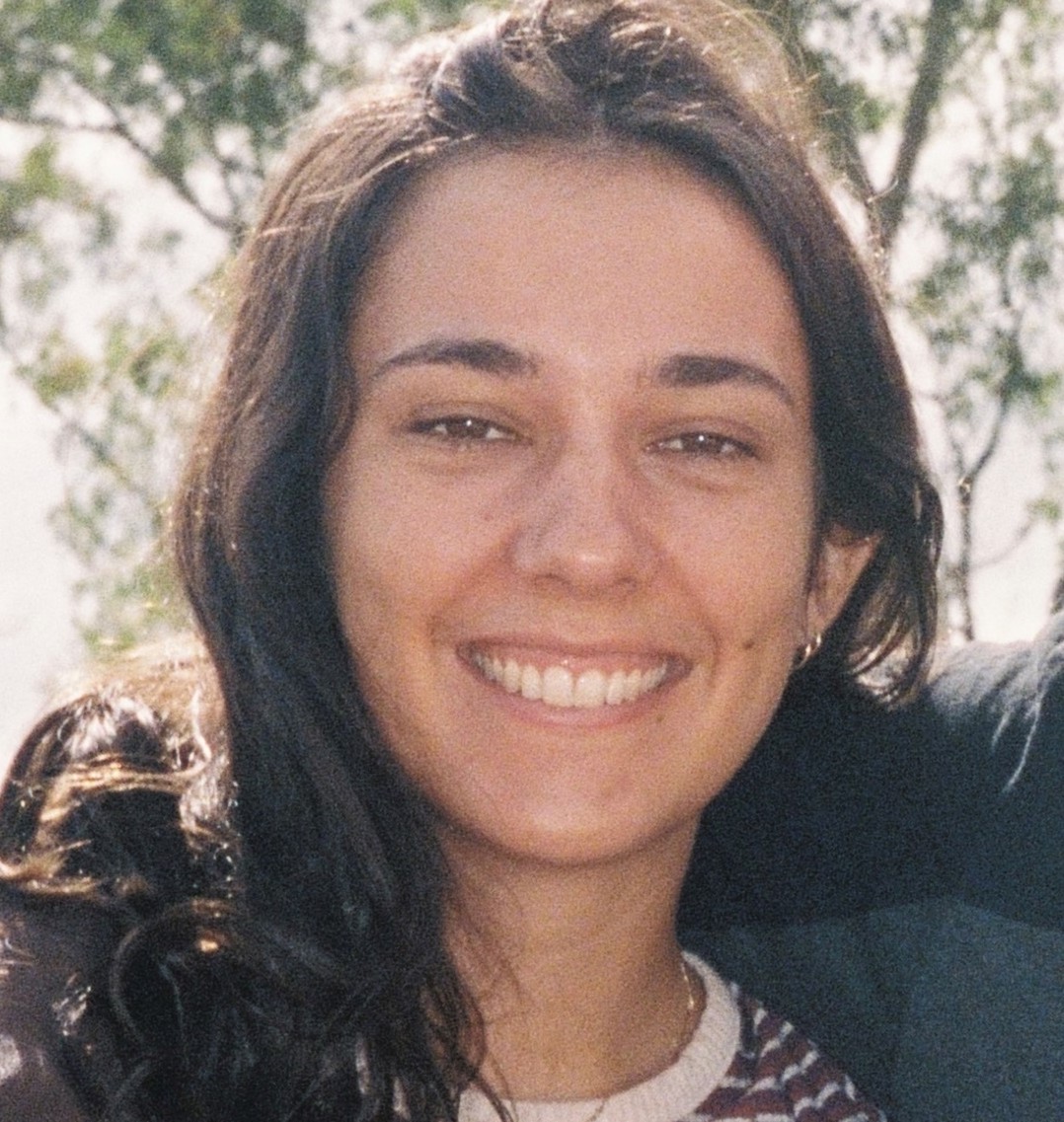Our Team

Dr
Virginia Marshall is an Indigenous Research Fellow with the Australian National
University’s School of Regulation and Global Governance. She is a Wiradjuri Nyemba yinaa.
Virginia is Principal Solicitor with Triple BL Legal and is an expert on Indigenous water law and governance, environmental law, Indigenous traditional knowledge systems and the intersectionality of western intellectual property regimes and the Indigenous commercialisation of native foods and medicines. Her full research profile can be viewed here.
Virginia is Principal Solicitor with Triple BL Legal and is an expert on Indigenous water law and governance, environmental law, Indigenous traditional knowledge systems and the intersectionality of western intellectual property regimes and the Indigenous commercialisation of native foods and medicines. Her full research profile can be viewed here.

Deakin Distinguished Professor Emma Kowal is
a Professor of Anthropology and Deputy Director at
the Alfred Deakin Institute for Citizenship and Globalisation.
She is one of Australia’s leading medical anthropologists and has conducted a range of research projects in Indigenous health settings in Australia, focusing on both Australian racial politics and the anthropology of biomedical research, genomics, bioethics, and public health. Her full research profile can be viewed here.
She is one of Australia’s leading medical anthropologists and has conducted a range of research projects in Indigenous health settings in Australia, focusing on both Australian racial politics and the anthropology of biomedical research, genomics, bioethics, and public health. Her full research profile can be viewed here.

Professor Ronald Quinn is a chemist and internationally recognised leader in drug
discovery research based at Griffith University.
Ronald was Foundation Director of the Eskitis Institute for Drug Discovery, now the Griffith Institute for Drug Discovery, GRIDD. His long-term collaboration with Nyikina Mangala Elders has been foundational to the past collaborative scientific work that has been conducted on mudjala. His reseach profile can be viewed here.
Ronald was Foundation Director of the Eskitis Institute for Drug Discovery, now the Griffith Institute for Drug Discovery, GRIDD. His long-term collaboration with Nyikina Mangala Elders has been foundational to the past collaborative scientific work that has been conducted on mudjala. His reseach profile can be viewed here.

Mr John Watson is a respected Nyikina senior Elder who is working as an Indigenous Research Collaborator on the project.
Mr Watson is an important figure in the Kimberley, and was heavily involved in the Nyikina Mangala native title claim. In 2014 the Federal Court in John Watson on behalf of the Nyikina Mangala People v State of Western Australia (No 6) granted the Nyikina Mangala people native title to 26,215 km2 of exclusive and non-exclusive possession in the West Kimberley, centred on the lower Fitzroy River.
Mr Watson is an important figure in the Kimberley, and was heavily involved in the Nyikina Mangala native title claim. In 2014 the Federal Court in John Watson on behalf of the Nyikina Mangala People v State of Western Australia (No 6) granted the Nyikina Mangala people native title to 26,215 km2 of exclusive and non-exclusive possession in the West Kimberley, centred on the lower Fitzroy River.
Ms Annie Milgin is a respected Nyikina senior Elder who is working as an Indigenous Research Collaborator on the project.
Ms Milgin has collaborated on a number of research projects and publications around Traditional Knowledge and language, and has worked in the field of health, previously managing the community health centre in the Jarlmadangah Burru Community.
Ms Milgin has collaborated on a number of research projects and publications around Traditional Knowledge and language, and has worked in the field of health, previously managing the community health centre in the Jarlmadangah Burru Community.

Mr Christopher Oliver is a nutritionist who is currently consulting to several food and nutraceutical companies.
His agricultural degree comes from La Trobe University, and post-graduate studies in nutrition and public health were at Sydney University. His research interests include body composition and ageing and nutritional supplements in health and disease. He also has an interest in meta-analysis and clinical trial designs.
His agricultural degree comes from La Trobe University, and post-graduate studies in nutrition and public health were at Sydney University. His research interests include body composition and ageing and nutritional supplements in health and disease. He also has an interest in meta-analysis and clinical trial designs.

Paul Marshall has extensive experience working with Kimberley Aboriginal senior elders, Aboriginal communities and Aboriginal representative bodies.
He has over 30 years experience coordinating a collaborative Aboriginal medicines R&D project with Griffith University on behalf of the Nyikina traditional owners. He also has extensive experience in project management in local government, the tertiary sector, the NFP sector, the private sector and with Aboriginal communities, and is currently completing a PhD related to the historical element of this project.
He has over 30 years experience coordinating a collaborative Aboriginal medicines R&D project with Griffith University on behalf of the Nyikina traditional owners. He also has extensive experience in project management in local government, the tertiary sector, the NFP sector, the private sector and with Aboriginal communities, and is currently completing a PhD related to the historical element of this project.

Dr Mardi Reardon-Smith is an anthropologist and the Deakin Senior Research Associate (SRA) on the project.
She is an early career researcher, whose research interests include environmental anthropology, Indigenous-settler relations, and visual anthropology. She has experience working with Aboriginal organisations and government and non-government land-management organisations in Cape York Peninsula, Qld.
She is an early career researcher, whose research interests include environmental anthropology, Indigenous-settler relations, and visual anthropology. She has experience working with Aboriginal organisations and government and non-government land-management organisations in Cape York Peninsula, Qld.

Binota
Moy Dhamai is an Indigenous (Tripura) person from the Chittagong Hill
Tracts (CHT) region of Bangladesh, by profession an activist (Indigenous
Peoples rights expert) and the Postdoctoral Fellow (Indigenous Governance) on
the project.
He is an early career researcher, whose research interests on Indigenous Peoples’ empowerment includes decolonisation, self-governance, autonomy, and self-determination. He has experience working with Indigenous Peoples organisations on political rights movements, network building, campaign and advocacy, in the national, Asia regional and international forum.
He is an early career researcher, whose research interests on Indigenous Peoples’ empowerment includes decolonisation, self-governance, autonomy, and self-determination. He has experience working with Indigenous Peoples organisations on political rights movements, network building, campaign and advocacy, in the national, Asia regional and international forum.

Matilda Houston is a
medicinal chemist and PhD candidate at the Griffith Institute for Drug
Discovery, supervised by Professor Ron Quinn and Dr Miaomiao Liu.
She is interested in studying natural products with medicinal properties; isolating, characterising and developing drugs from molecules found in nature.
She is interested in studying natural products with medicinal properties; isolating, characterising and developing drugs from molecules found in nature.

Tabassum Jannat is a Pharmacist and a lecturer in Bangladesh, and a PhD candidate at the Griffith Institute for Drug Discovery, supervised by Professor Ron Quinn and
Dr Miaomiao Liu.
In her PhD project, Tabassum is working to develop a topical analgesic from the Mudjala plant. Her role is to focus on the compositional analysis of the plant. She is working on establishing an assay method to obtain a biomarker and is also developing a method for quality control of the topical analgesic.
In her PhD project, Tabassum is working to develop a topical analgesic from the Mudjala plant. Her role is to focus on the compositional analysis of the plant. She is working on establishing an assay method to obtain a biomarker and is also developing a method for quality control of the topical analgesic.
Partner Organisations
Kimberley Land Council (KLC) is the peak Indigenous body in the Kimberley region.
We acknowledge all Aboriginal and Torres Strait Islander Custodians of Country and recognise their continuing connection to land, sea, culture and community. We pay our respects to Elders past, present and emerging.